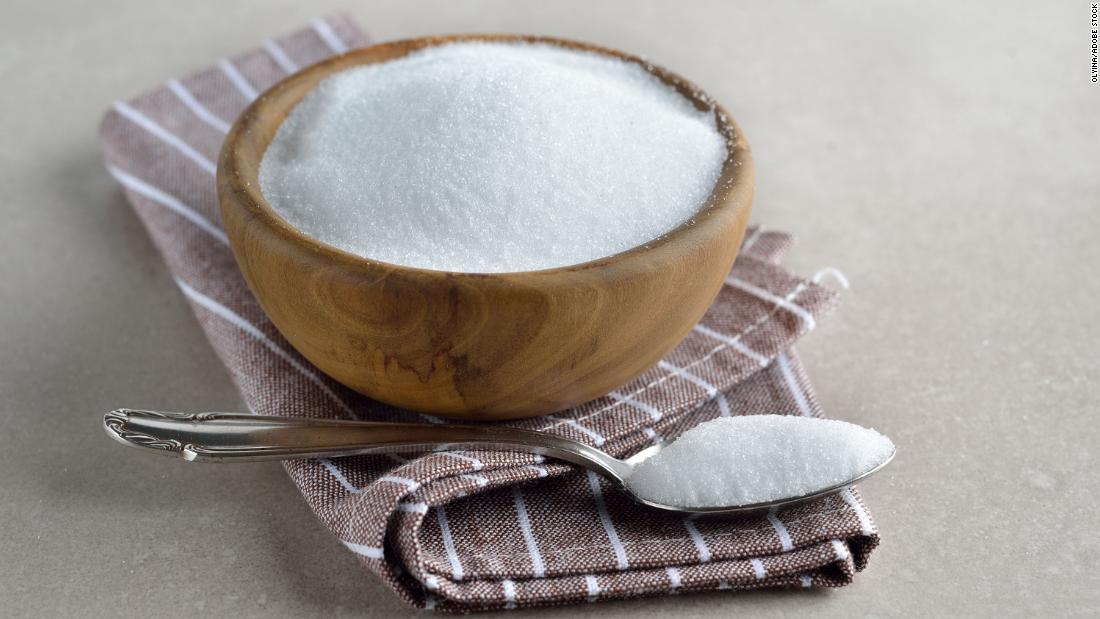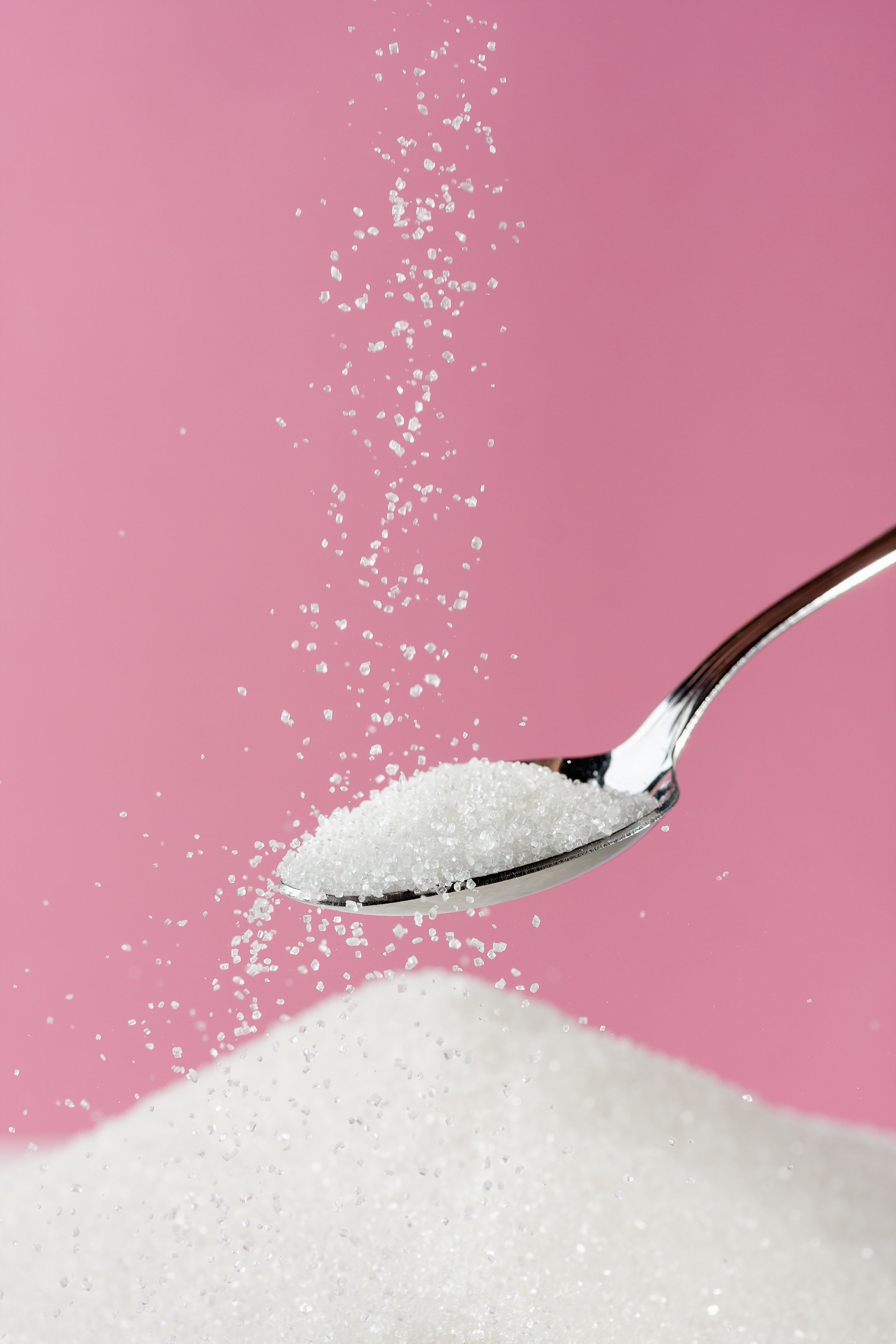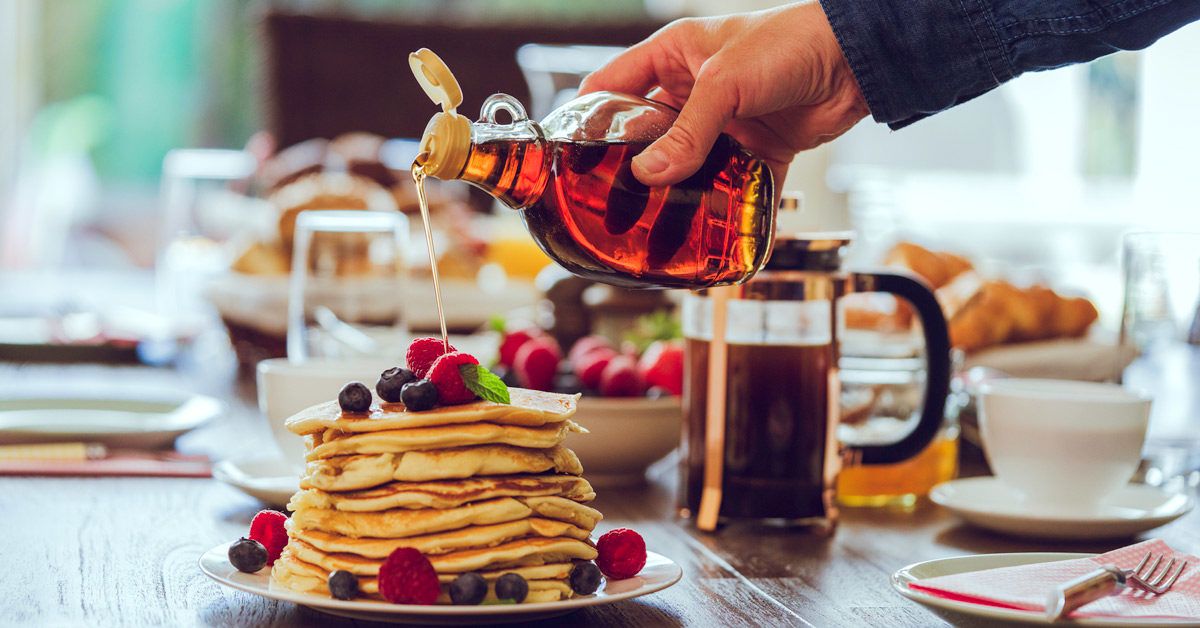I actually got rid of my no sugar french toast syrup and replaced it with fresh maple syrup. Lets look at the difference. The no sugar syrup was manufactured in a factory. Maple syrup has nutrients, and its produced NATURALLY. Not in a lab. True, there is about 24g of sugar at 2tbsp but if you keep your sugar content about 30-40g its not a big deal. And, its natural sugar. I also replaced Quaker Oats with organic oats from Bob's Red Mill. Countless studies on Quaker Oats has found trace amounts of Glyphosate. Otherwise known as Roundup. A very toxic chemical that I want no part in my diet anymore. I also got rid of Crystal Light and rerplaced it with clean filtered water. Clean water is better than toxic Chemical Light, which was formed in a lab? Who would had guessed? I've also got rid of many other items that are labeled "sugar free." Toxic junk food as far as I'm concerned. That includes diet Coke, Coke Zero, sugar free Minute Maid, etc.
Why am I doing this? Because the evidence is showing that all of our health issues start to form in the gut. You want a healthy body? Keep your gut healthy. By injesting sugar free foods, those sugar substitutes which were develpoed in a lab cause tremoundous harm to the gut and the bacteria that reside there. So many of our health issues in this country can be eliminated by focusing on foods that help nourish the bacteria in our gut. Foods like kimchi, leafy greens, fruits like blueberrries, brocolli, spinach, etc.
Sugar is always the same, and thus bad in frequent amounts and high amounts.
The "natural" sugar foods usually have "implicit behind the veil actions" that involve blocking it, inhibiting its uptake, spreading out its load, etc. Natural sugar isn't different, but it's combined with obstructive components to mitigate some of its effects. For the most part, natural sugar foods leads people to thing about to natural sweets, many of which were domesticated from wild ancestors to become sweet or in the case of honey, make more reliably and safely to humans.
Thus, there is an intellectual "one foot in, one foot out" with regards to it, in which there is a vested interest by the "powers that be" and their "puppets"(nutrition scientists receiving grants) in wanting people to keep eating foods with it but at the same time not denying its harms. That's why going "all the way" to elimination or "severe" restriction are called "fad diets", such as Keto or low carb. Maybe to the usual bigger bodied people, 50gs of whatever carbs is truly enough to stay in ketosis. For me, it's more than half of my maximum threshold before I start feel carb neuropathy.
At best, "natural sugar" is an implicit heuristic for communicating with the non-expert, since getting too complex can cause confusion. But it sure isn't perfect and exploits the "naturalistic fallacy".
The current guidelines for added sugar limits were not willingly agreed to, but rather a "counterdogma" resulting from the work of the likes of Robert Lustig(who strongly says no added sugar, but also encourages whole fiber intake of both and insoluble and soluble varieties) and others.
Now, with that said, trace ingredients can have a significant effect even in a very sugary product, but intake has to be judicious so the negatives of sugar don't outweigh the positives. Of note to me, and probably the "lesson-giver" of an experience was the effect of eating lychee fruit on chemo-induced gastritis on my mother. The gut did not respond to Imodium or Pepto, nor a variety of other foods(ranging from the likes of fish to bread, and many things in between), but consumption of lychee fruit caused
complete cessation of the colitis diarrhea for a few hours. My mother is prediabetic, so any sugary food causes hestiation, but she has less regard for ceasing sugar or glucose control than I do, so she ate them anyway.
Now me personally, I'm a "cold" and unfeeling person in the regards to terms like "natural", "healthy", etc. Food still remains a batch of chemicals to me, and it annoys me to no end when people make appeals to nature. The words detox and cleanse are couple auto-eyerollers. Probably a bit of a loss for me for my first 30 years, but it's useful for wading through the nonsense that is ever present in nutrition advocacy.
e "lesson-giver" of an experience was t

 www.cnn.com
www.cnn.com






